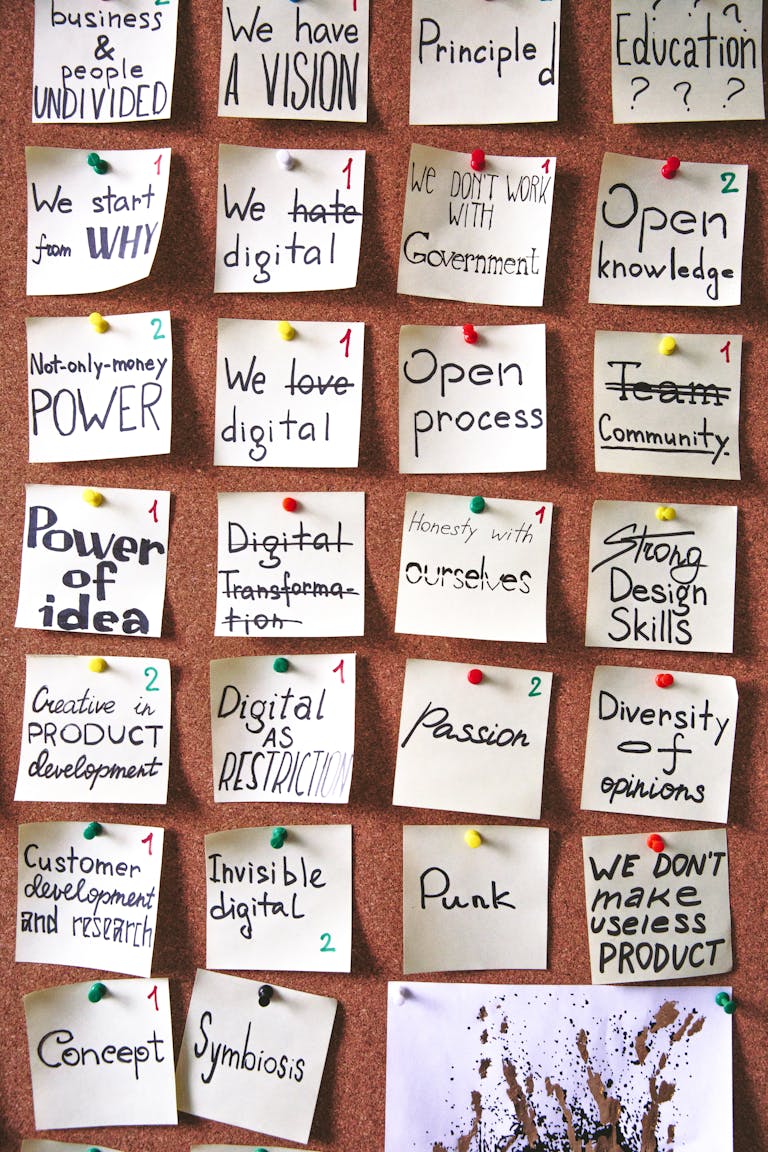Time management is one of the most important skills you can master for long-term productivity and success. Whether you’re juggling work, family, or personal goals, managing your time effectively can make the difference between feeling overwhelmed and achieving your goals efficiently. In this article, we’ll dive into practical strategies for mastering time management and increasing your productivity.

1. Start with Clear Goals
The first step to effective time management is knowing exactly what you want to accomplish. Without clear goals, it’s easy to get sidetracked or waste time on tasks that don’t contribute to your long-term objectives.
Use the SMART framework (Specific, Measurable, Achievable, Relevant, and Time-bound) to define your goals. Break them down into smaller, manageable tasks and prioritize them based on urgency and importance.
2. Use Time Blocking to Stay Focused
One of the most effective time management techniques is time blocking. Time blocking involves setting aside specific chunks of time for different tasks or activities throughout the day.
Instead of switching between tasks constantly, which can reduce productivity, allocate dedicated time for each task. For example, you might block out 9 AM to 11 AM for deep work, 11 AM to 12 PM for meetings, and 1 PM to 2 PM for responding to emails. This technique helps reduce distractions and improves focus.
3. Prioritize Your Tasks with the Eisenhower Matrix
Not all tasks are created equal. Some are urgent and important, while others are neither urgent nor important. To determine what to work on first, use the Eisenhower Matrix.
This matrix divides tasks into four quadrants:
- Urgent and Important: Do these tasks immediately.
- Important, but Not Urgent: Schedule these tasks for later.
- Urgent, but Not Important: Delegate these tasks if possible.
- Neither Urgent nor Important: Eliminate these tasks or save them for later.
By prioritizing tasks in this way, you ensure that you’re spending time on activities that truly move you closer to your goals.
4. Set Boundaries and Limit Distractions
In today’s hyper-connected world, distractions are everywhere. Email notifications, social media, and interruptions from coworkers or family members can derail your productivity.
To combat distractions, set clear boundaries for yourself. Turn off notifications on your phone or computer while working, and schedule specific times for checking emails or social media. If you’re working from home, create a designated workspace where you can focus without interruptions.
5. Batch Similar Tasks Together
Multitasking may seem like a good way to get more done, but it can actually decrease productivity and lead to mistakes. Instead, try batching similar tasks together. Grouping similar activities—like responding to emails, making phone calls, or completing routine administrative tasks—can save you time and mental energy.
For instance, set aside 30 minutes in the morning to respond to emails, followed by a block of time for writing reports, and then a session for meetings. Batching similar tasks reduces the mental load of switching between different types of work.
6. The Two-Minute Rule for Quick Tasks
When you encounter a task that will take less than two minutes to complete, do it immediately. The two-minute rule is a simple and effective strategy to avoid procrastination and stay on top of small tasks that can pile up.
Whether it’s responding to a quick email, making a brief phone call, or filing a document, take care of it right away. Completing these tasks immediately helps keep your to-do list manageable and prevents you from feeling overwhelmed.
7. Take Breaks to Recharge
It may seem counterintuitive, but taking regular breaks can actually boost your productivity. Working for long periods without a break can lead to burnout, mental fatigue, and decreased focus.
Use techniques like the Pomodoro Technique, which involves working for 25 minutes, followed by a 5-minute break. After four cycles, take a longer break of 15-30 minutes. This method helps maintain energy levels and ensures you stay focused throughout the day.
8. Delegate When Possible
No one can do everything on their own. Delegating tasks to others—whether it’s at work, at home, or in your personal life—can free up time for you to focus on higher-priority tasks.
If you’re working on a team project, delegate tasks based on team members’ strengths. At home, consider delegating household chores or other responsibilities to family members. Don’t be afraid to ask for help, as delegation is a key part of effective time management.
9. Review and Adjust Your Schedule Regularly
Time management is not a one-size-fits-all approach. What works for you today might not work tomorrow, and your priorities may shift over time. Regularly review your schedule to ensure you’re staying on track and making the most of your time.
At the end of each week, take a few minutes to reflect on what worked well and what didn’t. Adjust your schedule as needed and make changes to improve your productivity for the upcoming week.
10. Learn to Say No
One of the hardest but most important aspects of time management is learning to say no. It’s easy to get caught up in commitments, but overloading yourself with tasks can lead to burnout and a lack of focus.
Be selective about the commitments you take on. If a new task or project doesn’t align with your goals or priorities, politely decline or delegate it to someone else.
Conclusion
Mastering time management is key to achieving your personal and professional goals. By using techniques like time blocking, the Eisenhower Matrix, and batching tasks, you can make the most of your time and increase your productivity. Don’t forget to set boundaries, take breaks, and review your schedule regularly to ensure you’re staying on track.
Effective time management isn’t just about being busy; it’s about being productive and intentional with your time. Start implementing these strategies today, and you’ll see your productivity soar.
Q: How can I manage my time better when I have a busy schedule?
A: Use time management techniques like time blocking, prioritizing tasks with the Eisenhower Matrix, and batching similar tasks together. These strategies can help you stay organized and focused even when you have a full schedule.
Q: How do I avoid distractions while working?
A: Set boundaries by turning off notifications, creating a designated workspace, and scheduling specific times for checking emails or social media. This will help you stay focused and reduce distractions.
Q: How can I make sure I’m not overloading myself with tasks?
A: Learn to say no to tasks that don’t align with your goals or priorities. Focus on high-impact activities and delegate tasks when possible to ensure you’re not overwhelmed.
Take Control of Your Time Today!
Start implementing these time management strategies and watch your productivity soar. By mastering your time, you’ll be able to accomplish more with less stress and greater satisfaction.

I’m EKBAL HOSSAIN MONDAL, the creator of SmartSolveTips.com — a blog dedicated to helping people improve productivity, avoid digital burnout, and live better online. With years of hands-on experience in self-development and digital wellness, I write practical tips and tools to help you stay focused and thrive in a fast-paced digital world.






